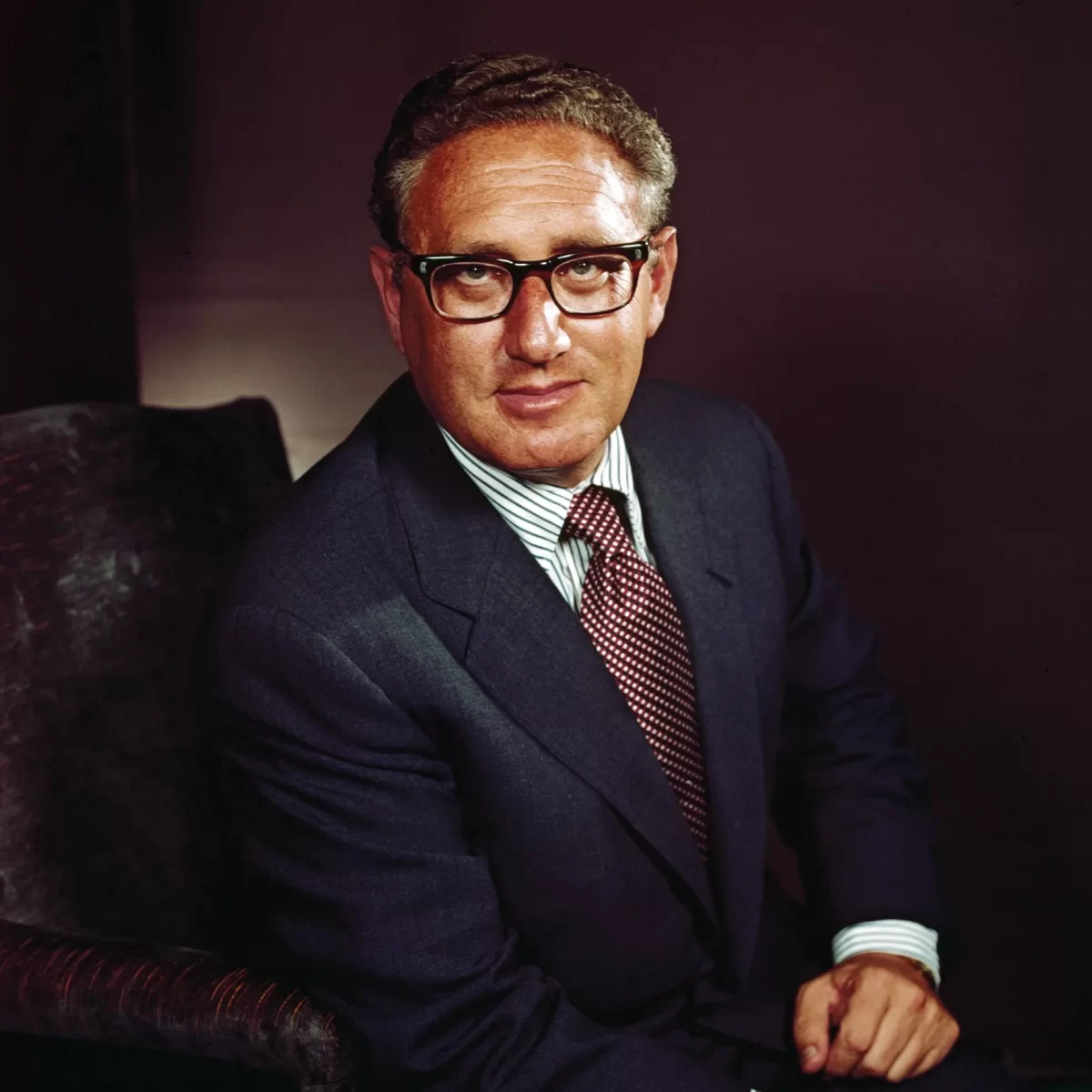On November 29th, former Secretary of State Henry Kissinger died at 100 years old. Having served under the administrations of 12 presidents, the tenured politician and diplomat has undeniably shaped American politics for the better part of the last century. To fully understand his reputation, actions, and controversies, we need to start from his unlikely origins.
Heinz Kissinger was born in 1923 to a Jewish family in Germany. When the Nazis began to rise in power and give way to rampant antisemitism in the country, Kissinger and his family fled to America in his teenage years. A few years later, he would serve in World War II, and fight against the Nazis. Having been so closely connected to bigotry and war in his early life may have had a profound impact on his career path and policies, although some would argue certain actions of his were hypocritical of his upbringing in creating unjust violence and hatred.
Kissinger graduated from Harvard in 1950, and would quickly become a professor. In 1957, he wrote a book warning against the danger of Nuclear Weapons, which became a bestseller. In the early 1960’s, he officially began his involvement in politics, becoming a member of the State Department in Vietnam.
The charismatic and knowledgeable diplomat would soon rise the ranks on Vietnam committees, and would eventually serve in a head position directly under the president. Kissinger’s first majorly controversial action came when he used information on peace negotiations he had obtained to sabotage the talks, in order to make President Johnson appear incompetent.
Following the lack of a settlement to the Vietnam situation under the tenure of Democratic President Johnson, Republican Richard Nixon would be elected President, just as Kissinger intended. Nixon soon named Kissinger America’s National Security Adviser of Vietnam with the hopes of ending the war, giving Kissinger the power he wanted.
Kissinger’s most controversial action came from a period in 1969 and 1970, during the climax of the Vietnam War. In order to weed out Vietcong soldiers hiding in Cambodia, he ordered carpet bombings on “anything that flies or anything that moves” (New York Times) in neutral Cambodia, which Vietcong soldiers were allegedly using to camp out and operate secret bases in. Anywhere from 50,000 to 200,000 civilians were killed in these indiscriminate, unorganized, and chaotic bombings. Despite these horrible actions, Kissinger was awarded a Nobel Peace Prize in 1973 for his part in ending American involvement in the Vietnam War, even though he had greatly succeeded in extending the war while believing that it could not be won. This decision was so controversial that two members of the committee which selected the Nobel Prize winners resigned. Le Duc Tho, the Vietnam co recipient who had arranged peace talks with Kissinger even refused to accept the award, saying that his job was not finished, since even then the Vietnam War would not officially end until two years later in 1975.
His human rights abuses did not stop there. In 1971 as Secretary of State, Kissinger continued to enact a genocide against east Pakistan, resulting in a death toll of over 300,000 civilians and displacing millions of refugees. His motivation for this was largely to ease tensions with Pakistan, who would help Kissinger arrange two secret trips in China in preparation for President Nixon’s trip in 1972.
Kissinger has been largely criticized for failing to address various human rights abuses in places like South Africa, South America, and parts of Asia. Additionally, he helped fund military coups in Chile, Indonesia, and several other democratic countries for fears of Communism.
It wouldn’t be accurate to describe Kissinger without acknowledging all of the good that he did as well. Understanding the catastrophic dangers of nuclear weapons, he convinced the Soviets to pull out their nuclear weapons in the middle east, a deal which would last for over 4 decades. He helped to establish temporary peace between Israel, Egypt, and other Arab nations in the 1970’s at a time where war seemed imminent. He helped to establish a stable relationship between America and China, while overseeing the end of the Cold War and a period of immense economic growth in the United States. And most importantly, despite his many controversies surrounding it, Kissinger oversaw the end of American involvement in the Vietnam War through the Paris Peace Accords in 1973.
With a career spanning a quarter of American history, Kissinger is bound to have some praises and criticisms. Former President Gerald Ford admired Kissinger’s bravery and political strength, but also said that “he had the thinnest skin of any public figure [he] ever knew” (Reuters). President Joe Biden said that they often disagreed with each other, but he admitted that Kissinger’s “fierce intellect and profound strategic focus was evident” (Reuters). Former President Barack Obama, critical of America’s involvement in the Vietnam War, stated that “Nixon withdrew, Kissinger went to Paris, and all we left behind was chaos, slaughter and authoritarian governments that finally, over time, have emerged from that hell” (nytimes). And Nation Security Spokesperson John Kirby has said that, “whether you saw eye-to-eye with him on every issue, there’s no question that he shaped foreign policy decisions for decades, and he certainly had an impact on America’s role in the world” (Reuters).
Now that Kissinger’s life has ended, his legacy cannot be fully understood for years to come, as we cannot completely know the impact of his various actions throughout his 100 year life. While some would argue that Kissinger allowed for continued prosperity and global strength in our nation, many propose that his human rights violations cannot be excused under any circumstances. Whatever your personal opinion may be, it is impossible to deny that Kissinger has been an immensely powerful figure in our country’s history, for better or for worse.

